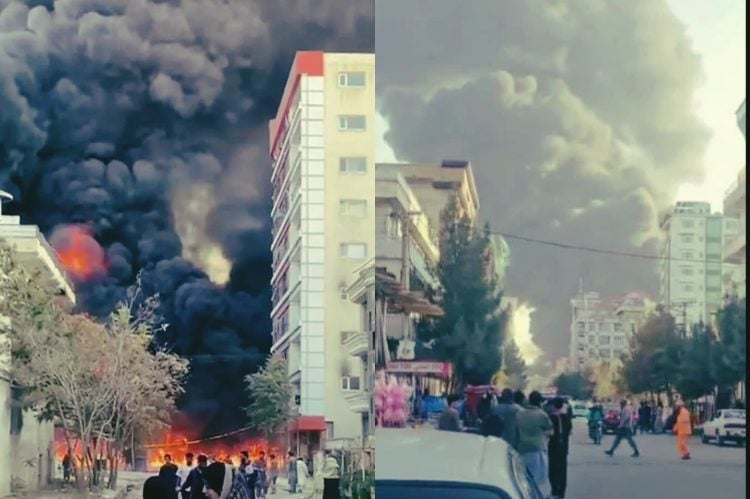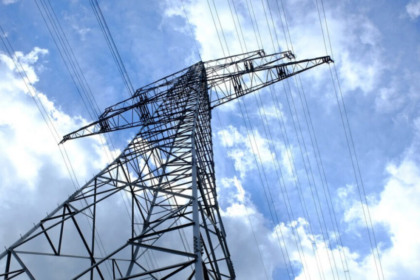RASC News Agency: The Human Rights Alliance has sharply condemned Pakistan’s recent airstrikes on residential neighborhoods in Kabul and Kandahar, describing them as a “blatant act of aggression” and a gross violation of Afghanistan’s sovereignty and international law. In a statement released on Thursday, October 16, the organization accused Pakistan of pursuing a policy of state terrorism, asserting that ordinary civilians rather than armed groups were once again made to bear the consequences of Islamabad’s militarized regional ambitions.
According to the Alliance, the air raids struck densely populated urban areas where families were asleep, far removed from any militant presence. “With deep respect for the sanctity of human life and the inviolability of national sovereignty,” the statement declared, “we unequivocally condemn every form of military assault that endangers Afghanistani civilians. These attacks constitute a grave breach of international humanitarian norms and a direct assault on the territorial integrity of Afghanistan.”
The Alliance went on to argue that the Taliban’s muted and evasive response to these violations exposes their enduring subservience to Pakistan’s military establishment, the very power that cultivated and sustained their rise. For decades, the Taliban served as an instrument of Pakistan’s regional strategy, waging wars on Afghanistan’s soil to advance Islamabad’s geopolitical agenda. Now, as relations between the two begin to fracture under competing intelligence interests and shifting regional alignments particularly amid the growing rivalry between Pakistan and India the Taliban’s political impotence and moral bankruptcy have been laid bare.
Rather than defending Afghanistani sovereignty, the Taliban regime has remained silent in the face of foreign aggression, downplaying the deadly airstrikes as minor “accidents.” Zabihullah Mujahid, the group’s spokesperson, even claimed that a “fuel tanker caught fire in western Kabul” and that “no casualties occurred,” a statement widely condemned by local residents as an insult to the victims and proof of the regime’s cowardly dependence on Islamabad.
Eyewitnesses, however, described scenes of devastation in the aftermath of the bombardments. Entire residential blocks and markets were flattened, and hospitals were overwhelmed with the wounded. Medical sources at Kabul’s Emergency Hospital confirmed that at least 40 civilians, including women and children, were brought in with severe injuries, while many more were feared trapped beneath the rubble. Although the Taliban authorities have yet to release an official death toll, footage circulating online shows widespread destruction consistent with targeted aerial bombardment.
In its statement, the Human Rights Alliance urged the United Nations, the UN Security Council, and global human rights organizations to launch an immediate and independent investigation into Pakistan’s airstrikes and to hold Islamabad accountable for what it called “a systematic campaign of cross-border terrorism.” The organization emphasized that failure to do so would embolden aggressors and signal the international community’s indifference toward the suffering of the Afghanistani people.
The Alliance further underscored that the root cause of Afghanistan’s continuing instability lies in the persistence of terrorist networks such as the Taliban and their foreign patrons, calling for their complete dismantlement. “Lasting peace in the region,” it stated, “will only be possible through the total eradication of militant extremism and the imposition of genuine accountability on states and groups that perpetuate it.”
Analysts note that Pakistan’s attacks and the Taliban’s passive response reveal the collapse of Afghanistan’s sovereignty under Taliban rule. Once a proud nation defending its independence, Afghanistan has now been reduced to a protectorate of competing intelligence agencies, where decisions of war and peace are dictated not by its citizens but by the interests of neighboring powers. As the Taliban continue to suppress dissent and eliminate critical voices domestically, their silence in the face of external aggression demonstrates a regime that rules through fear but bows before foreign masters.
Regional observers warn that if the international community continues to tolerate this alliance between Pakistan’s militarism and Taliban complicity, Afghanistan could once again become the epicenter of a new wave of extremism, with grave consequences for South and Central Asia. The Human Rights Alliance concluded its statement with a stark warning: “Ignoring these crimes will not bring stability it will invite catastrophe. The flames of impunity lit in Kabul today may burn far beyond Afghanistan tomorrow.”






